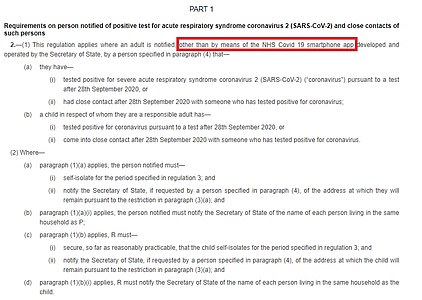The ‘pingdemic’ IS on course to paralyse England: Up to SIX MILLION people could be told to stay at home every week by end of July as cases grow 75% every seven days – as bosses say a fifth of their workers are ALREADY being notified by app
- Nissan in Sunderland was among businesses that have flagged serious issues with app affected 900 workers
- Official figures show as many as 5,200 military personnel were absent from duties because of self-isolation
- Unite’s Steve Bush: ‘I believe we’re hours not days or weeks away from our first temporary closure of sites.’
- Meat Processors Association chief executive said abattoirs would have to ‘rationalise’ product lines
- Royal College of Anaesthetists and Faculty of Intensive Care Medicine demand vaccinated medics exempted
- Solicitor General Minister Lucy Frazer admitted the Government recognises the ‘significant impact’ of app
- But the junior minister said it remained an ‘important tool’ in the fight against Covid-19 until next month
England could be economically paralysed within weeks without action to halt the Covid app ‘pingdemic’ forcing hundreds of thousands of workers to stay at home.
Analysis by MailOnline suggests that in a worst-case scenario around six million adults could be in isolation by the end of the month.
Ministers were warned that factories could be forced to start closing today and consumers could see shortages of some foods because there are not enough staff to carry out key functions amid skyrocketing coronavirus infection rates.
Office for National Statistics (ONS) data released this morning estimated the number of people infected with the virus in the week ending July 10 was 577,700, up 73.5 per cent in just a week. One in 95 people in England had Covid last week according to the official data based on thousands of swab tests.
It comes as official figures revealed that as many as 5,200 military personnel were absent from duties because they were self-isolating under coronavirus rules, while a quarter of staff are yet to receive a vaccine.
The revelation led to increased calls on Friday for the Government to take ‘urgent action’ by changing quarantine rules as restrictions are relaxed in England and infections rise.
Meanwhile, Britain’s daily infection toll breached 50,000 today for the first time since January. Anyone who tests positive is told to self-isolate and has their contacts traced.
But because the Bluetooth phone app ‘pings’ all those who have been in close contact with positive cases, the number of people self-isolating at home at any one time is far higher.
Unlike those people contacted by phone, it is not a legal requirement to self-isolate after being pinged by the app. But Downing Street today made it clear it expects people to do so.
It raises the prospect of the economy grinding to a halt due to a chronic lack of available workers, even after the lockdown is supposed to have ended on Monday.
Business leaders and trade unionists from across all sector of the economy lined up to warn the Government that a major rethink is needed today, because the current situation is not sustainable. A fifth of all private sector workers are currently having to self-isolate, according to industrial analysis.
Meat workers are in talks with the government about emergency exemptions for their workers who are pinged by the app – but as of this afternoon no deal had been announced.
There were also a series of warning from NHS representatives who warned that the pingdemic is taking a toll on medical services across the country – with one trust asking staff to postpone their holidays.
But ministers and Downing Street rebuffed them, insisting the app was vital and would not be removed until the middle of next month.
Solicitor General Minister Lucy Frazer admitted the Government recognises the ‘significant impact’ it is having, but said it remained an ‘important tool’ in the fight against Covid-19.
Downing Street also declined to confirm reports that workers in vital industries like food preparation and butchery could get exemptions planned for NHS workers.
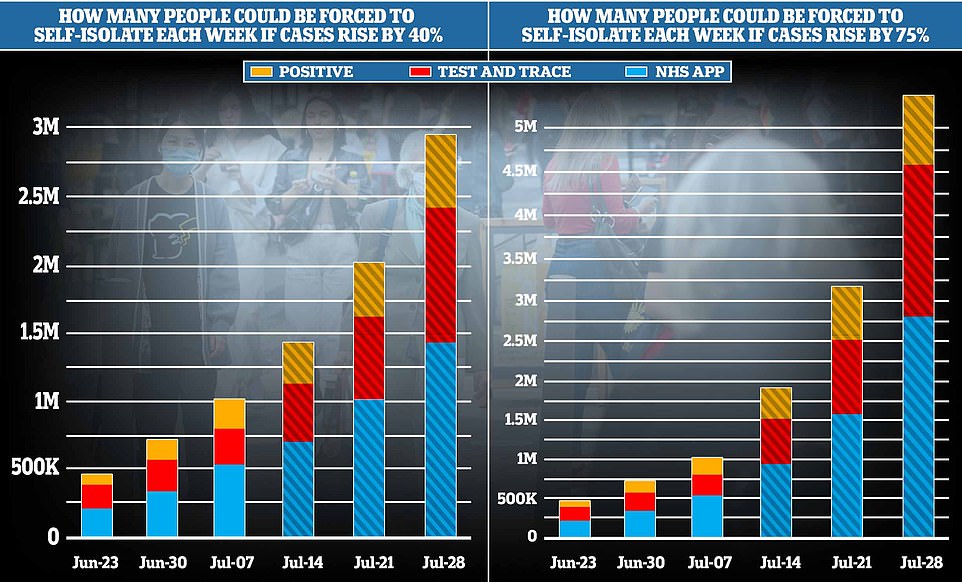
Up to 1million people were asked to self-isolate last week, data suggests. But that figure could hit 5.6million by the end of the month, if cases spiral by 75 per cent every week (right), according to MailOnline analysis. Separate projections based on a growth rate of 40 per cent – similar to what Test and Trace reported last week – still says the number of people self-isolating could hit 3million a week. But the true figure will be much lower because many people who are told to self-isolate end up testing positive, and some people will be flagged down by both NHS Test and Trace and the app
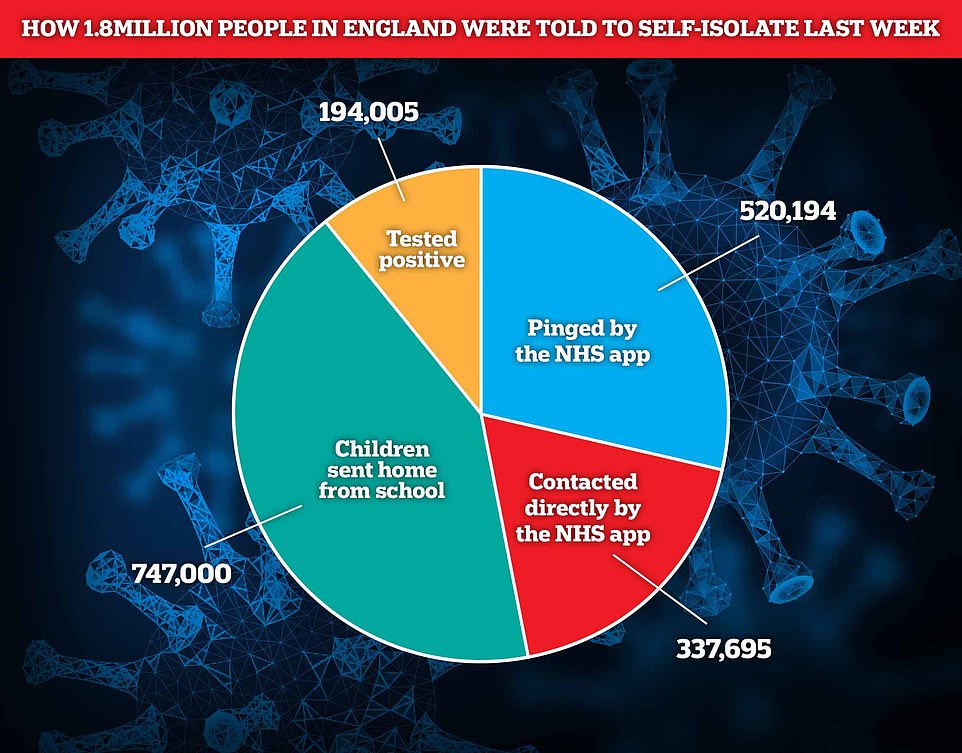
Around 1.8million people were asked to self-isolate last week in England, data suggests. That includes 194,000 people who tested positive, 520,000 who were ‘pinged’ by the app, almost 340,000 who were contacted directly by Test and Trace, and 750,000 schoolchildren
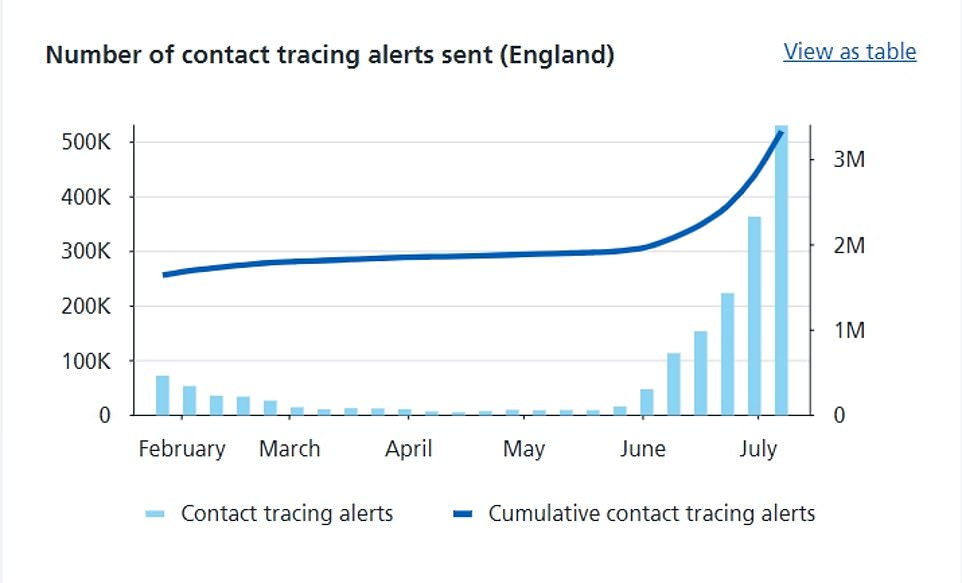
NHS England data showed a record 520,000 alerts were sent by the app last week, telling people they had been in close contact with someone who tested positive
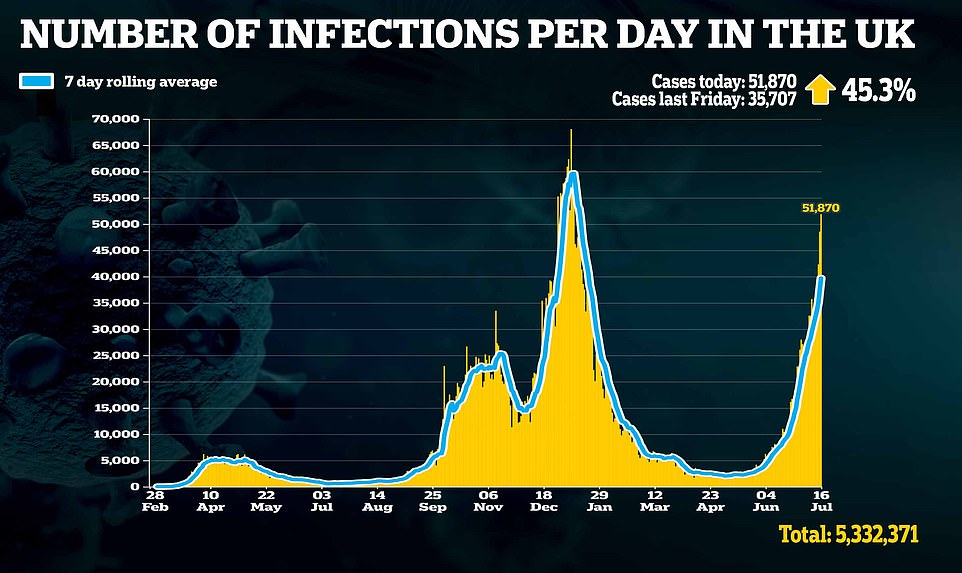
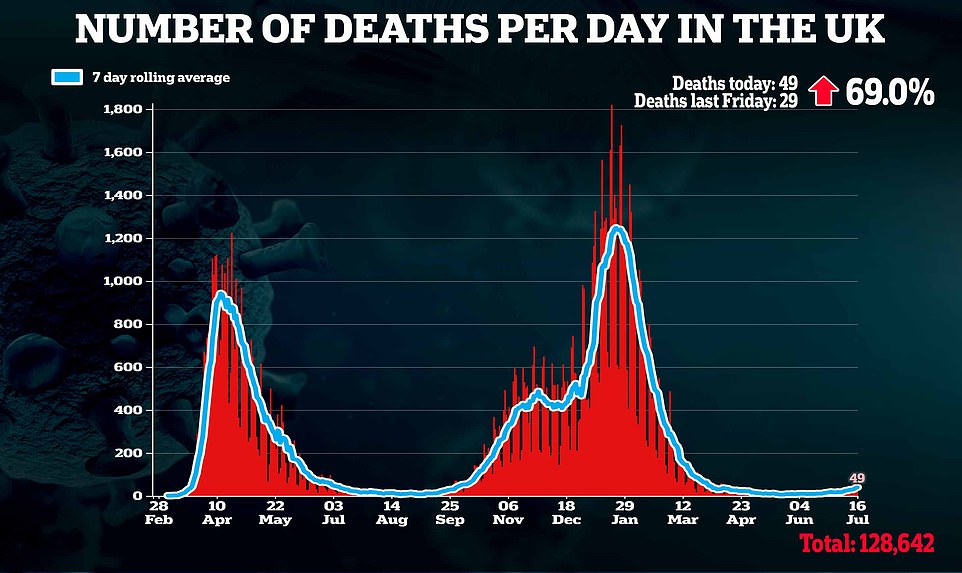
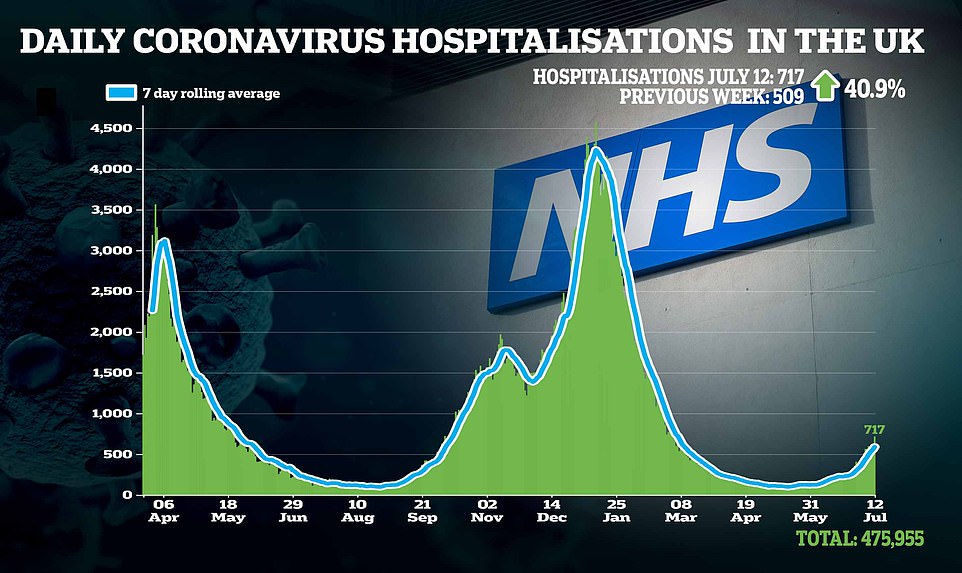
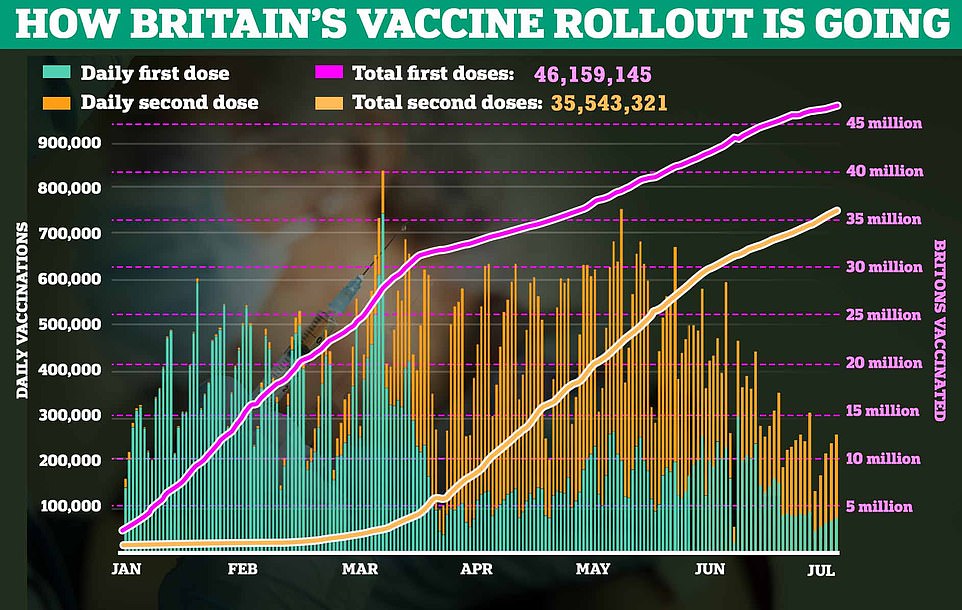
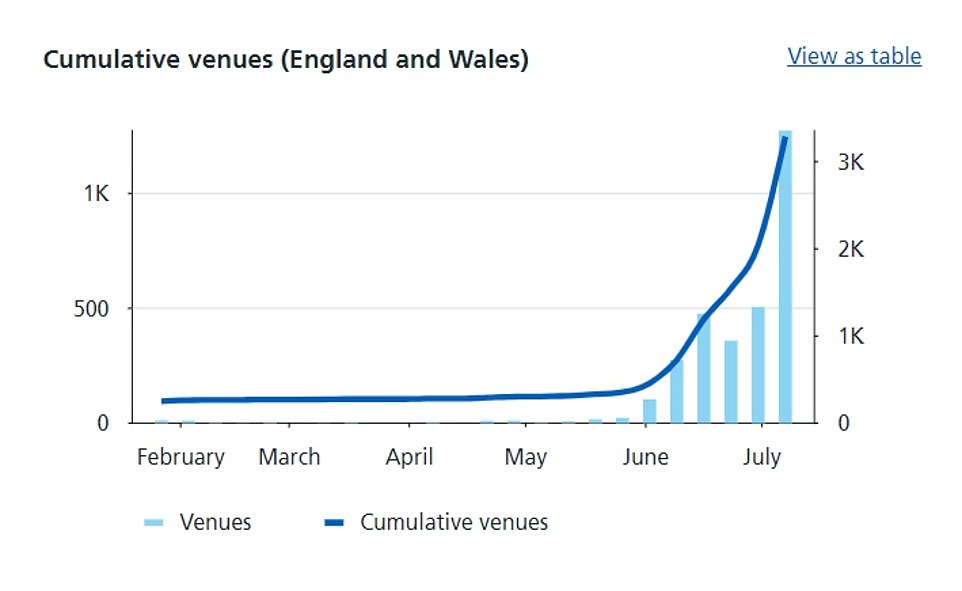
And the number of alerts sent out in relation to venues also more than doubled in seven days
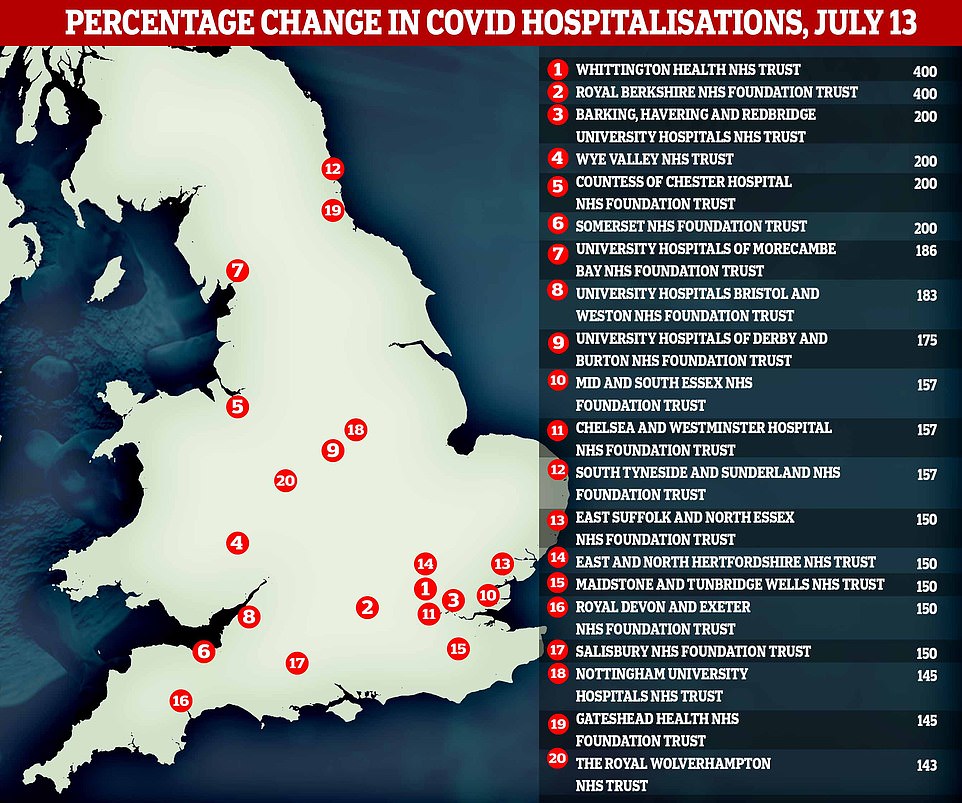
Four fifths of NHS hospitals in England are now seeing a spike in Covid patients being admitted, official data has shown as the third wave of the pandemic continues to take its toll ahead of ‘Freedom Day’ on Monday
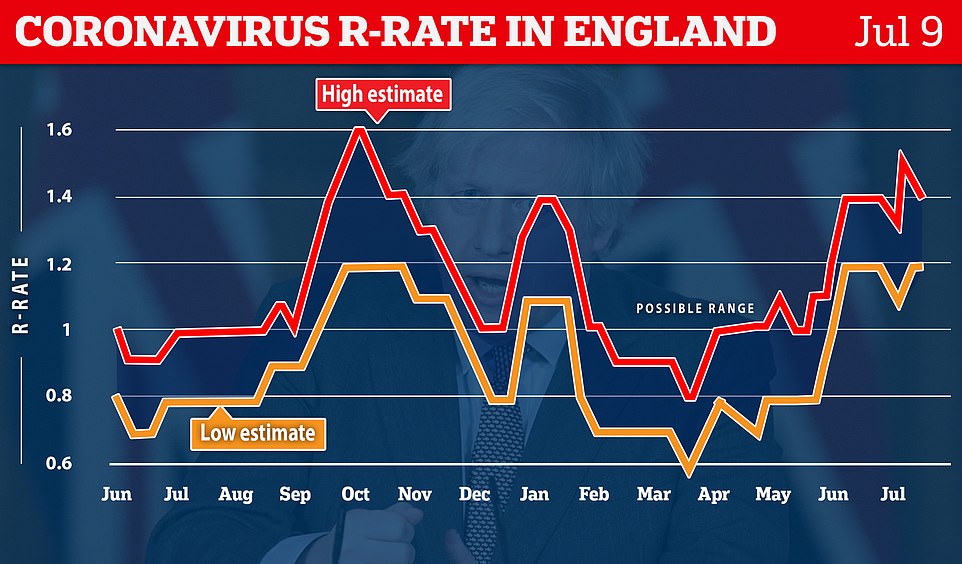
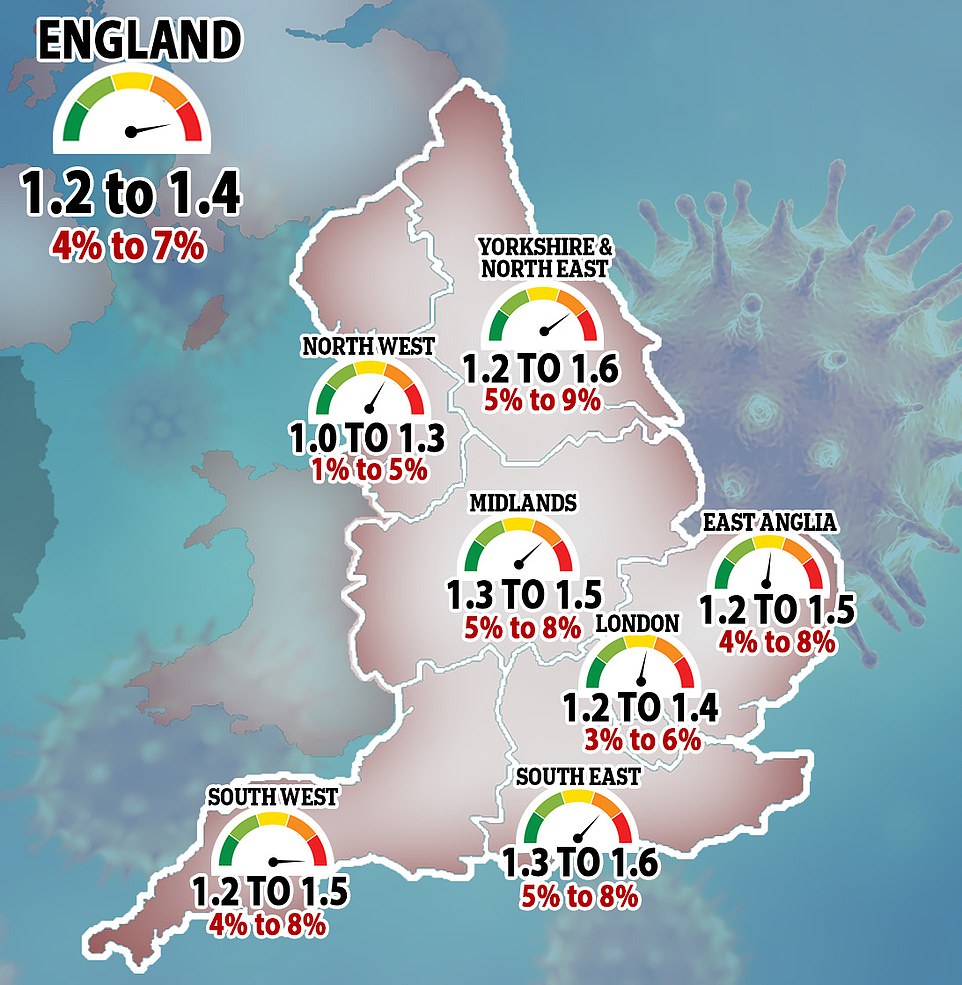
In a more positive sign, SAGE today estimated England’s R rate is between 1.2 and 1.4, down from last week’s figure of between 1.2 and 1.5
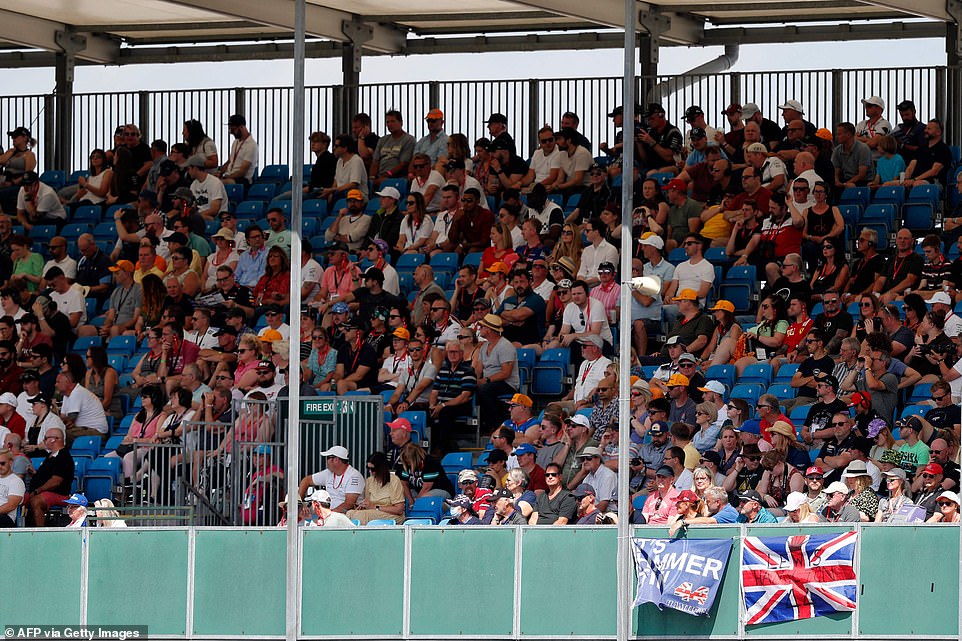
No mask in sight: Spectators watch the action at Becketts Corner during the first practice session of the Formula One British Grand Prix at Silverstone
It came as:
- One in 95 in England had Covid last week, official data has shown amid warnings from ministers that the country will face another lockdown the wave doesn’t stop spiralling soon;
- Official figures released today show the contact-tracing app sent out 520,000 self-isolation alerts last week;
- Councils raised concerns over bin collections after Leeds, Bristol and Rochdale were forced to leave resident’s rubbish on the curbside after the app forced workers to stay at home;
- Official figures revealed that as few as 30 per cent of adults have been double-jabbed in inner cities;
- Ministers were urged to get a grip on the Covid travel test fiasco that has led to lengthy delays and appalling service.
The MailOnline analysis is based on the 75 per cent growth rate in confirmed Covid cases continuing for the next three weeks.
Other surveillance measures, however, say the outbreak is growing slower, including one symptom-tracking app that believes the outbreak has already peaked.
The rise in positive cases is mirrored with a similar increase in the number of people having to isolate after being pinged as a close associate, according to this website’s projections.
Up to 1million people were asked to self-isolate last week, data suggests.
But that figure could hit 5.6million by the end of the month, if cases spiral by 75 per cent every week.
Thousands of people who are pinged also go on to become confirmed cases, meaning the total will be lower. And some people will be flagged down by both NHS Test and Trace and the app.
In addition, if enough people self-isolate, the rate of infection could drop, scientists say.
A lower estimate by the Adam Smith Institute projects a figure of around 2million people.
The app’s maker last night told the Financial Times it was functioning as it should.
Wolfgang Emmerich, chief executive of Swiss firm Zühlke UK said it was ‘doing exactly what we designed it to do’, and increased notifications were ‘a reflection of the increases in infection numbers rather than any change in the app’.
Nissan was among businesses that have flagged serious issues, after around 900 workers at its flagship plant in Sunderland were forced to isolate after they were pinged by the app.
Meanwhile, as many as 5,200 military personnel were absent from duties because they were self-isolating under coronavirus rules, while a quarter of staff are yet to receive a vaccine, official figures show.
Ministers are planning to exempt the fully-vaccinated from quarantining over close contacts but will not introduce the change until August 16, around a month after most restrictions end.
Ministry of Defence figures show 5,200 regular and reservist armed forces personnel were reported absent from work due to self-isolation over infection or as close contacts on July 1.
That is nearly 3 per cent of the 198,000 personnel available to the Army, Navy and Air Force.
The figures also showed that there was no record of around a quarter of personnel – 54,742 – having received a coronavirus vaccine as of July 5.
Tobias Ellwood, the Conservative MP who chairs the Commons Defence Committee, warned that national security could be endangered if the figure continues to rise to 10%.
‘When the scale of mass isolation caused by Covid-19 app starts hitting the operational effectiveness of our armed forces it’s time to urgently review the protocols,’ he told the PA news agency.
‘Even with rising infections it’s clear the app’s sensitivity could trigger a national security risk if a disproportionate scale of manpower is forced to isolate.’
Layla Moran, the Lib Dem MP who chairs the all-party parliamentary group on coronavirus, urged the Government to take ‘urgent action’ to prevent a further hike in isolation numbers.
‘The Government’s failure to keep Covid cases under control is now threatening the readiness of our armed forces,’ she said.
‘Ministers must explain what they are doing to address the risks posed by their road map to our national security.’
Labour’s shadow defence minister Stephen Morgan added: ‘These concerning figures demonstrate that ministers are falling short of their solemn duty to protect our serving personnel, who continue to perform vital work at home and abroad.
‘The Government must immediately set out a clear and credible plan to step up vaccinations for our service personnel, and particularly those who are on deployment.’
The figures were released by defence minister Baroness Goldie as a written answer to a question from Crossbench peer Baroness Masham.
Last night Unite’s Steve Bush told Newsnight: ‘I believe we’re hours not days or weeks away from our first temporary closure of sites.’
And the Meat Processors Association chief executive said abattoirs would have to ‘rationalise’ product lines, stopping those requiring the most butchery, in order to keep food on shelves.
Nick Allen told BBC Radio 4’s Today programme: ‘We were struggling with skilled labour anyway, and now on top of this you have got them being pinged and told to stay at home for 10 days.
‘So it’s quite a critical point and it is not really a numbers game. It’s if you get critical people in the production line pinged and having to stay at home that can cause as much of a problem as sheer numbers.’
The Royal College of Anaesthetists and the Faculty of Intensive Care Medicine issued a joint call to exempt double-jabbed NHS staff from isolation over close contacts.
Sir Jonathan Montgomery, the former chair of the ethics advisory board for the NHS Test and Trace app, said while he would not change the function of being ‘pinged’ by the app the ‘consequences’ needed to be updated.
But Ms Frazer said firms would have to wait until August 16 for the isolation requirement to go.
‘It (the app) is an important tool because it is important that you do isolate if you do come into contact (with a positive case), but I know this is something the Government is looking at,’ she told Sky News.
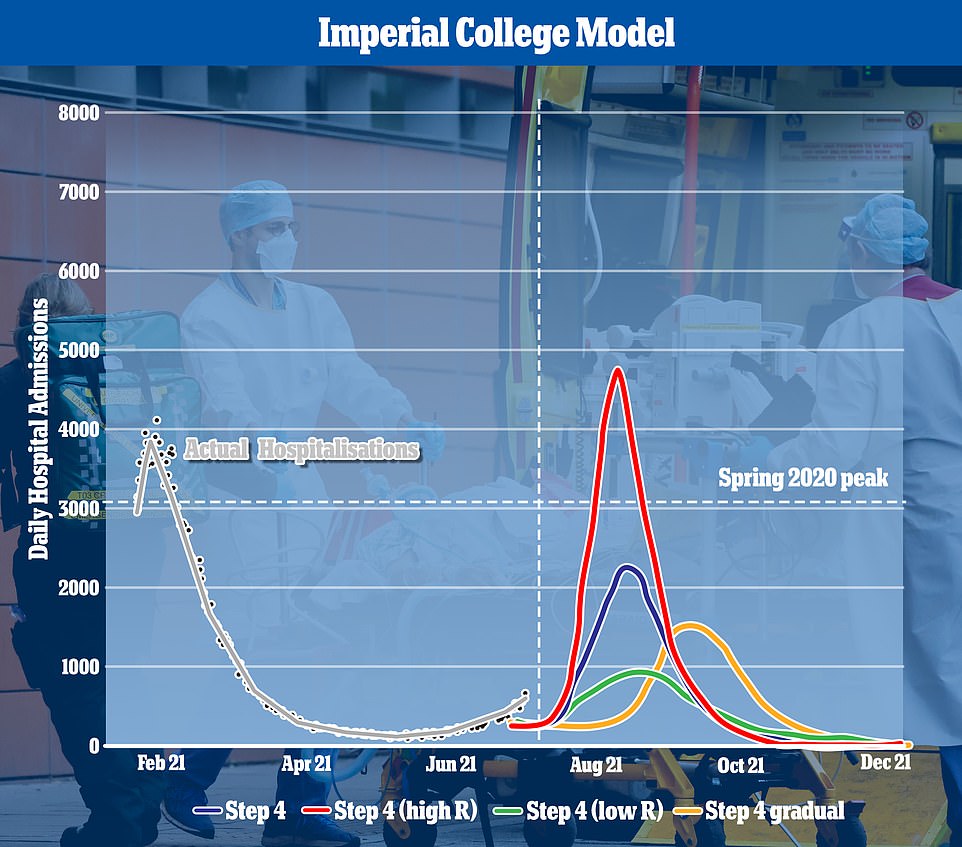
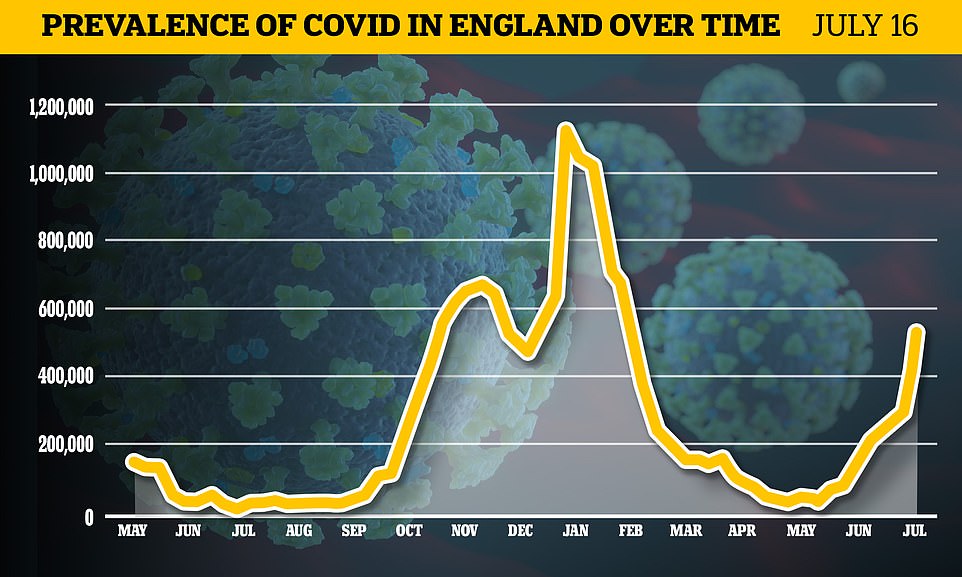
Office for National Statistics (ONS) data — based on random swab testing of thousands of people — the number of people infected with the virus in the week ending July 10 was 577,7000, up 73.5 per cent in a week
‘In addition to the changes in mid-August, the Government is also carrying out a number of pilots to see whether instead of isolating when you get pinged, you could take a test.
‘The Government is looking at this very carefully, recognising the significant impact this is having on businesses.’
No 10 said those contacted by the NHS Covid app to self-isolate should follow the guidance, amid calls from some employers for ‘pinged’ staff who test negative to be allowed to continue to go to work.
Asked about employers calling for those testing negative to break their self-isolation, a spokesman for the Prime Minister said: ‘We are asking people who are contacted by the app to continue to isolate, that’s what we’ve asked people to do since the app was launched.
‘The reason for that is not just to protect themselves but also to try and break the chain of transmission to other people that they may come into contact with.’
On the rise in cases of people being sent alerts by the app, the No 10 official said: ‘The Prime Minister spoke about the fact that we are seeing case numbers increase, and obviously as a result you would expect to see the numbers of people being notified to self-isolate increase also.’
The spokesman said he would ‘not speculate’ on whether the Government had predictions for how many people could be asked to quarantine at the peak of the current wave of infections.
It came as health bosses in Sunderland asked staff to postpone holidays as the trust came ‘under extreme pressure’ due to a surge in coronavirus cases.
Staff at South Tyneside and Sunderland NHS Foundation Trust – dealing with one of the highest infection rates in the country – are seeing hospital cases doubling week-on-week.
In an internal note to staff earlier this week, bosses said there were 80 Covid-19 patients receiving hospital treatment compared with just two exactly a month before.
Chris Hopson, the chief executive of NHS Providers, said the hospital trusts the organisation represents are increasingly concerned over dealing with the care backlog ‘with large numbers of staff unable to work’.
‘We know that national leaders are working hard to find a solution to this problem. The key is that this solution is delivered as a matter of urgency,’ he added.
In the private sector, Stephen Phipson, chief executive of manufacturing organisation Make UK, said: ‘This is a problem that has escalated significantly over the last week with more and more companies being affected by isolation, with not just an impact on production but a hit to actual shipments of goods going overseas.
‘This is an increasingly serious issue affecting companies of all sizes and sectors. There is now an urgent priority for Government to bring forward the August date given the likely impact of restrictions being lifted next week.’
Rail, Maritime and Transport union (RMT) general secretary Mick Lynch warned that Monday ‘will see a surge in workers pinged with a self-isolation instruction next week’.
‘Even at this late stage, the Government, the train operators and the bus companies should issue a clear, legally backed instruction that levels up the rest of the UK to the safety standards that will remain in force in Wales and Scotland,’ he added.
Frances O’Grady, general secretary of the TUC, said: ‘Staff shortages will only get worse unless people are kept safe at work.
‘The Government urgently needs to toughen its confusing and inadequate back-to-work safety guidance – starting with making masks a legal requirement on public transport and in shops.
‘If we are to stop Covid-19 ripping through workplaces, workers must be able to afford to self-isolate. Government must urgently raise sick pay to the level of the real living wage and make sure everyone can get it.’
Business leaders have warned the ‘pingdemic’ was causing chaos for families, firms and hospitals and demanded changes on the NHS Covid-19 app to avoid a ‘self-inflicted economic wound’.
NHS chiefs have also warned the system was making it ‘increasingly difficult’ to deliver routine care and said hospitals were now scrapping operations because so many workers were having to self isolate.
Nearly 900,000 alerts telling people to quarantine were issued in the first week of this month following contact with a coronavirus victim.
But rising numbers of people being forced into self-isolation has led unions to warn that factories across the country are on the ‘verge of shutting’ down.
It came as it was revealed a terrified 12-year-old girl hid behind her mother – afraid she was going to be arrested – when police turned up in numbers at her home to check that she was self-isolating.
Charlotte Crook had been at home following the rules after a positive coronavirus test and her shocked mother Kathryn yesterday branded the police response ‘overkill’.
Officers came to her home in what the family said was a riot van, prompting a ‘meltdown’ from the bewildered schoolgirl.
Throughout the pandemic, police have faced accusations of heavy-handedness in enforcing Covid restrictions.
Up to 900 workers at car giant Nissan’s flagship plant in Sunderland are being made to self-isolate after they were pinged by the app, it was claimed today.
And the National Care Association said care homes had ‘real staffing issues’ because of the app.
Bin rounds were also missed this week in Sutton Coldfield because of outbreaks of Covid and some hospital trusts have had up to 500 staff isolating at a time, forcing them to close beds and cancel operations.
Meanwhile the chief executive of Rolls-Royce, Torsten Muller-Otvos, said the car maker was on the ‘edge of a critical situation’ and a complete shutdown could not be ruled out.
He told The Daily Telegraph: ‘Cases have gone through the roof and it is causing havoc.’
Elsewhere, Chris Hopson, of NHS Providers, said: ‘Trust leaders continue to share serious concerns about rising levels of staff isolation, which are now significantly impacting on their ability to deliver care.’
This week, health secretary Sajid Javid warned daily Covid infections were likely to top 100,000 after restrictions are lifted on Monday. That could force around half a million a day to self-isolate.
Separate data from Test and Trace showed infections surged by 43 per cent last week after another 194,005 people tested positive for the virus. And Britain today recorded another 48,553 Covid cases in the biggest daily surge since January.
People told to isolate by the app are under no legal requirement to do so because their identity is not tracked by the software.
But fears have been raised that the software could cripple the nation’s already fragile economy this summer when restrictions are completely lifted.
Businesses demanding a re-think of the rules have warned supermarket shelves may be left empty if tens of thousands of workers are told they must self-isolate in the coming weeks.
Unite assistant general secretary Steve Turner said: ‘No one is advocating for Covid controls to go out the window and Unite’s number one priority remain the health and safety of our members.
‘But the reports Unite is receiving from our members and their employers are extremely worrying.
‘It is not an exaggeration to say factories are on the verge of shutting and that at some sites hundreds of staff are off work.’
And councils have raised concerns over bin collections after Leeds, Bristol and Rochdale were forced to leave resident’s rubbish on the curbside after the app forced workers to stay at home.
Liverpool Council yesterday confirmed bin collection would be cancelled for two weeks in parts of the city.
Cabinet member for neighbourhoods Abdul Qadir said: ‘Unfortunately due to Covid guidelines on isolation our refuse service team is severely depleted, and we need to prioritise our waste collections.
‘Our current programme is clearly not sustainable when one in four staff are unavailable to work.
‘We know the temporary suspension of collecting garden waste will be an inconvenience but it will allow us to ensure general waste and alleyway cleansing is kept to schedule.
‘Our recycling centres are also open late in the summer so residents have an option if they feel they can’t wait for the next green bin cycle.
‘After 19 July, the isolation guidelines change for those who have been double jabbed and this two week delay will give us time to re-organise the teams to ensure we can get back on track at the start of August.’
UK PLC on brink of ‘ping-demonium’: Small firms to big business are on the verge of complete SHUTDOWN due to staff being forced into isolation after ‘ping’ from NHS Test and Trace app
Factories are now on the verge of shutting and small businesses have already been forced to close because so many workers are having to self isolate across Britain in the ‘pingdemic’.
Nearly 900,000 alerts telling people to quarantine were issued in the first week of this month alone after contact with a coronavirus victim.
It is causing chaos for families and firms, prompting business leaders to demand changes on the NHS Covid-19 app to avoid a ‘self-inflicted economic wound’.
In retail and hospitality a third of staff are self-isolating in the worst-hit areas, forcing thousands of venues to shut.
People are pinged by the app and told to self-isolate for ten days after coming into contact with an infected person.
There is no legal requirement to self-isolate if pinged by the app – however, it is illegal to disobey an order to self-isolate in a phone call from NHS Test and Trace.
Plans to make the NHS Covid app less sensitive, meaning fewer people would be pinged, have been delayed as concerns mount over rising infection rates.
Here, businesses around Britain reveal the problems caused by the ‘pingdemic’:
Test and Trace system is ‘woefully inadequate’ with small businesses suffering ‘crippling’ effects, says HR consultant
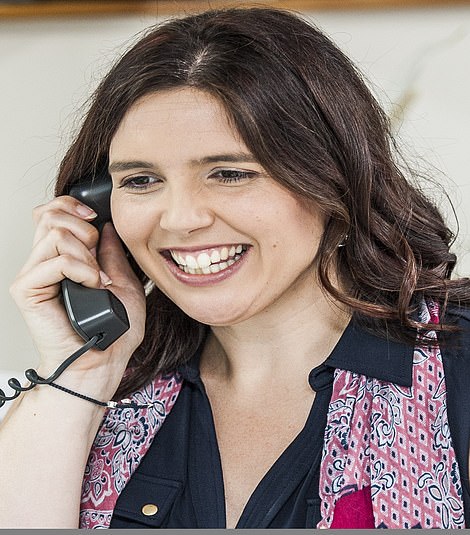
Kate Underwood, who runs an HR and training consultancy firm in Southampton
An HR and training consultant blasted the Test and Trace system as ‘woefully inadequate’ saying that for many small businesses – especially in the hospitality, events and retail sectors – it is ‘crippling’.
Kate Underwood, who runs the Kate Underwood HR and Training consultancy in Southampton, said some of her small business clients ‘could have more than 75 per cent of their staff off at a time that when they need to be pulling out all the stops and starting to recover financially from this pandemic’.
She told MailOnline today: ‘I have been asked advice on what to do from many clients and my advice is still the same – use common sense – talk to your teams and get them to make the decision on whether to trust the app. Put in extra Health and Safety measures yourself like doing a lateral flow test prior to any shift.
‘From working in hospitality for 15 years, the passion from those that work in the industry is starting to get frazzled – they have been on furlough for months, now they get pinged to say they can’t work and furlough payments have dropped.’
Charity boss says app pings are a ‘real headache’ and are costing it ‘additional time and money that we can ill afford’
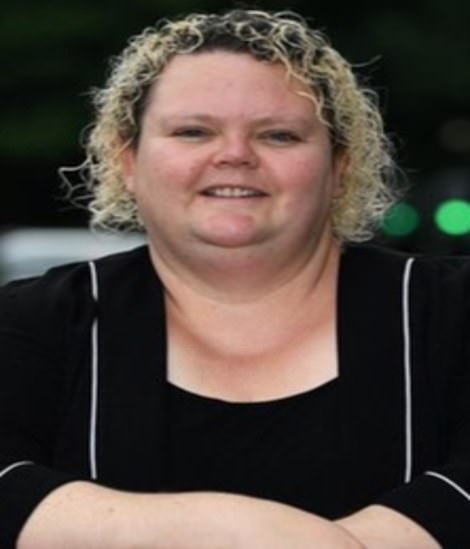
Marie Peacock, chief executive at Yorkshire’s Brain Tumour Charity in Leeds
The boss of a brain tumour charity in West Yorkshire told MailOnline today how the ‘pingdemic’ was causing the organisation a ‘real headache’.
Marie Peacock, chief executive at Yorkshire’s Brain Tumour Charity in Leeds, said: ‘Our fundraising income has been decimated and we are just starting to see some opportunities to begin to bring in the money we need to keep our support going, and guess what? The pings are going bonkers.’
She said the charity was attending the Great Yorkshire Show over four days this week, but lost half of their planned staff and volunteer cover due to self-isolation, even though they were testing daily and were showing no signs of symptoms.’
Ms Peacock added: ‘I have had to move work and resources around, close our charity shop and try to cover the best way possible.
‘It is costing the charity additional time and money that we can ill afford. I will always support and encourage my team to follow the advice, but have to admit the app has been deleted from my phone.’
Businesses across the country are ‘only one ping away from a whole world of financial pain’, says independent coffee firm owner

Craig Bunting, co-founder of BEAR in Derby
The co-founder of a coffee business told MailOnline that businesses across the country were ‘only one ping away from a whole world of financial pain’.
Craig Bunting, co-founder of BEAR, a Derby-based independent coffee brand which has five stores in the UK, said not legalising the isolation requirements from the Test and Trace app ‘shows that the Government doesn’t trust its own technology and systems, so why should we, as small business owners?’
He added: ‘We have stores that have closed, meaning lost revenue, and others on a permanent knife edge. You’re only one ping away from a whole world of financial pain.
‘Despite this, and as much as I might personally want to, we don’t advise our staff to ignore the app, as we have a duty of care and responsibility as a brand to follow the guidance.
‘We see evidence that more staff are making their own decision to remove the app or turn off contract tracing altogether. As a result, the Government are losing or have already lost the trust of the public.’
‘I’m livid’, says brewery owner who has six of his pubs shut due to staff shortages as he blasts Test and Trace as a ‘joke’
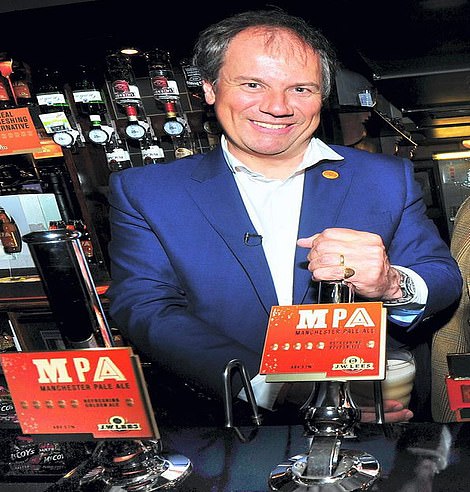
William Lees-Jones, the owner of J.W. Lees
William Lees-Jones, the owner of J.W. Lees, a brewery and pub chain, currently has six of his 150 pubs shut because of staff shortages.
He said: ‘I’m livid. It is frustrating at a time when we’re trying to recover. It’s one thing after another. Test and Trace has been a joke since it launched.’
The Manchester-based chain which was founded in 1828 has 42 managed pubs, inns and hotels – and also lets a further 105 venues to its pub partners.
At the start of July, Mr Lees-Jones said the number of his staff being asked to self-isolate by the NHS app had tripled in the previous few weeks from about 20 to more than 60. He said most were not ill or did not test positive for Covid-19.
Mr Lees-Jones has described Test and Trace as a ‘nightmare’ and is furious at how it appears hundreds of thousands of people are having to isolate despite not being ill.
Beauty salon owner says she ‘lost income massively’ when having to self-isolate and fears losing customers
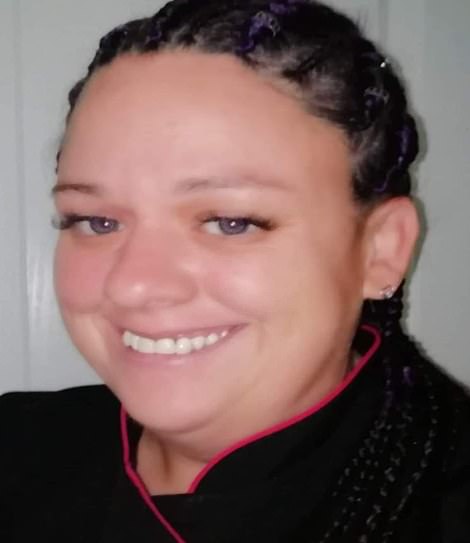
Amy Baker, who owns a Wisbech beauty salon
The owner of a beauty salon said she has suffered from having to self-isolate when her children ‘have the slightest cough’.
Amy Baker, who owns and runs Halo Beauty and Holistic Therapy in Wisbech, Cambridgeshire, said she and her husband have both had hospital appointments and surgical procedures over the past year – each time having to have a Covid test 72 hours prior to the procedure, along with all the household.
And she told MailOnline: ‘If my children have the slightest cough, they too have had to take a Covid test and again (that) has meant that I have also had to isolate with them. Unfortunately because these are not informed by the app and because we get child tax credits via Universal Credit, we are not eligible to receive the £500 isolation payment.
‘Being self-employed in the beauty industry in the 72 hours I have lost income massively due to this. If I started getting constant track and trace pings and have to cancel people’s appointments, I fear I could lose customers.’
NHS app has been a ‘disaster pretty much from the start’, says mortgage advisory company’s director

Imran Hussain, Harmony Financial Services
The director of a mortgage advisory company criticised the NHS app as a ‘disaster pretty much from the start’ and said trust from the public is ‘paper thin’.
Imran Hussain, from Harmony Financial Services in Nottingham, told MailOnline: ‘The Government not legislating that isolation is necessary if pinged does show a lack of faith from the Government in its own app, which has cost however many millions to create.
‘We don’t ever advise our team to ignore the app if pinged; as easy as it may be, I feel we have a responsibility to ensure we follow the guidance so we can all return to some normality as soon as possible. There’s no doubt that trust from the public is paper thin currently.’
‘We’re on the edge of a critical situation’: Rolls-Royce chief warns of possible shutdown with cases having ‘gone through the roof’
The chief executive of Rolls-Royce said the car maker was on the ‘edge of a critical situation’ after a large proportion of his UK staff were told to self-isolate.
Torsten Muller-Otvos said a complete shutdown of operations at its factories could not be ruled out, telling the Daily Telegraph: ‘Cases have gone through the roof and it is causing havoc.’
He declined to say how many of its staff had been pinged by the NHS Covid-19 app, but told how the company is now looking at having to combine staff from both shifts into a single shift.
It comes after the firm said it had been ‘religious’ about social distancing in its factories during the pandemic.
The company has more than 22,000 employees across seven sites in the UK, in Bristol, Rotherham, Birmingham, Derby, Nottingham, Washington in Tyne and Wear and Inchinnan in Scotland.
‘It’s a real problem’, says boss of shoe firm Timpson’s which has more than 100 staff in self-isolation due to the NHS app
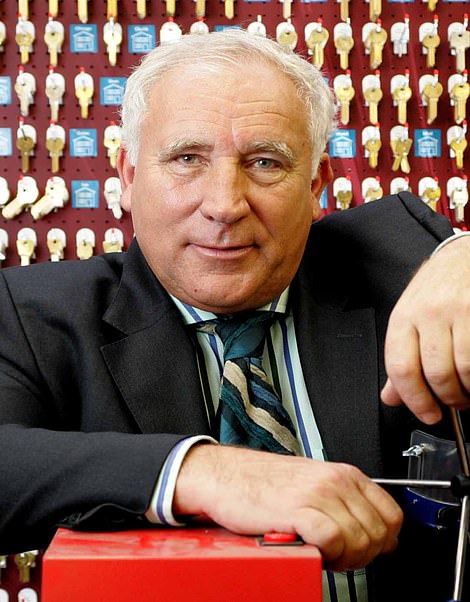
Timpson’s founder Sir John Timpson
The Timpson’s shoe repairs business has been badly affected by the ‘pingdemic,’ with more than 100 staff forced to isolate by the Test and Trace app.
Sir John Timpson, founder and owner of the chain, told BBC Radio 4’s Today programme earlier this week: ‘We are 140 people down… many due to isolation, which is people who have got to be home to look after children or people forced to isolate due to the Test and Trace app.’
The firm, which also runs three gastro pubs and restaurants in north Wales, also lost around £10,000-a-day when one – the Oyster Catcher, in Anglesey – was forced to close for similar reasons.
Sir John added: ‘We have three busy pubs and, one of those on Anglesey, we had 24 people isolating. We had to shut the pub, costing us £10,000 a day in turn over, the pub was shut for 10 days, it’s a real problem.’
His son, James, apologised for ‘a dip in the level of service’ in their shops. ‘Like many schools and businesses, we are struggling because so many colleagues are isolating after being ‘pinged’ by Test and Trace,’ he said. ‘We also have 120 colleagues who have had to stay at home to care for children sent home from school.’
‘Up to 900 staff’ at Nissan plant in Sunderland are now self-isolating as car maker admits it is having to ‘adjust’ production

The Nissan car factory in Sunderland (file)
Car manufacturer Nissan is among the larger businesses hit by the ‘pingdemic’, with up to 900 staff at its plant in Sunderland said to be self-isolating.
The Japanese company, which employs 6,000 people at the major UK site, has had to make changes to how its factory is run due to the high number of employees being pinged by the app.
A Nissan spokesman said: ‘Production in certain areas of the plant has been adjusted as we manage a number of staff being required to self-isolate following close contact with Covid-19.
‘The wellbeing of our team is our number one priority and we remain confident in the rigorous safety controls we have on site.’
** Has your business been hit by the ‘pingdemic’? Email: tips@dailymail.com **
Britain WILL ‘of course’ face a new lockdown if Covid third wave hits ‘unacceptable’ levels of hospitalisation, minister warns as admissions continue above predicted levels and Chris Whitty admits UK may have to consider new restrictions within WEEKS
Britain will ‘of course’ face a new lockdown if Covid’s third wave hits ‘unacceptable’ levels, a minister warned today after Chris Whitty admitted the country may have to face new restrictions within weeks.
Solicitor General Lucy Frazer suggested it was the right time to open up because of the vaccination drive — which has reached 90 per cent of Britons.
But with cases continuing to soar, hospital admissions tracking above some of SAGE’s worst-case projections, and deaths having hit a four-month high, she warned that No10 may be left with no choice but to consider reimposing tough restrictions.
Ms Frazer said: ‘Of course, if we get into a situation where it is unacceptable and we do need to put back further restrictions, then that of course is something the Government will look at.’
England’s chief medical officer last night cautioned the UK could still ‘get into trouble again surprisingly fast’ and hospitals may face ‘scary numbers’ within a matter of weeks.
Making it clear the country was not on an irreversible path to freedom despite No10 pushing ahead with step four of the roadmap to normality on Monday, Professor Chris Whitty said: ‘We are not by any means out of the woods yet.’
Boris Johnson has already dropped all mention of the final unlocking being ‘irreversible’. The Prime Minister has resorted to caution, calling on people not to ‘go wild’ and immediately rush to take advantage of the final easing — which includes lifting work-at-home orders and reopening nightclubs.
Cases have spiralled over the past few weeks, with scientists blaming the easing of restrictions and young men gathering to watch England’s Euro 2020 campaign for the uptick.
Vaccines have already saved thousands of lives since the third wave began, drastically slashing the proportion of infected patients who are left seriously ill. But jabs aren’t perfect, and admissions have been tracking upwards for a fortnight.
Almost 560 infected patients are being admitted to NHS wards each day now, compared to fewer than 100 before the Indian Delta variant took off in mid-May. The current trend in figures is above some of the gloomiest estimates from SAGE, who warned hospitalisations could breach 4,000 a day in August.
It comes after health chiefs yesterday posted another 63 deaths, in the highest daily rise since March, and 48,553 cases.
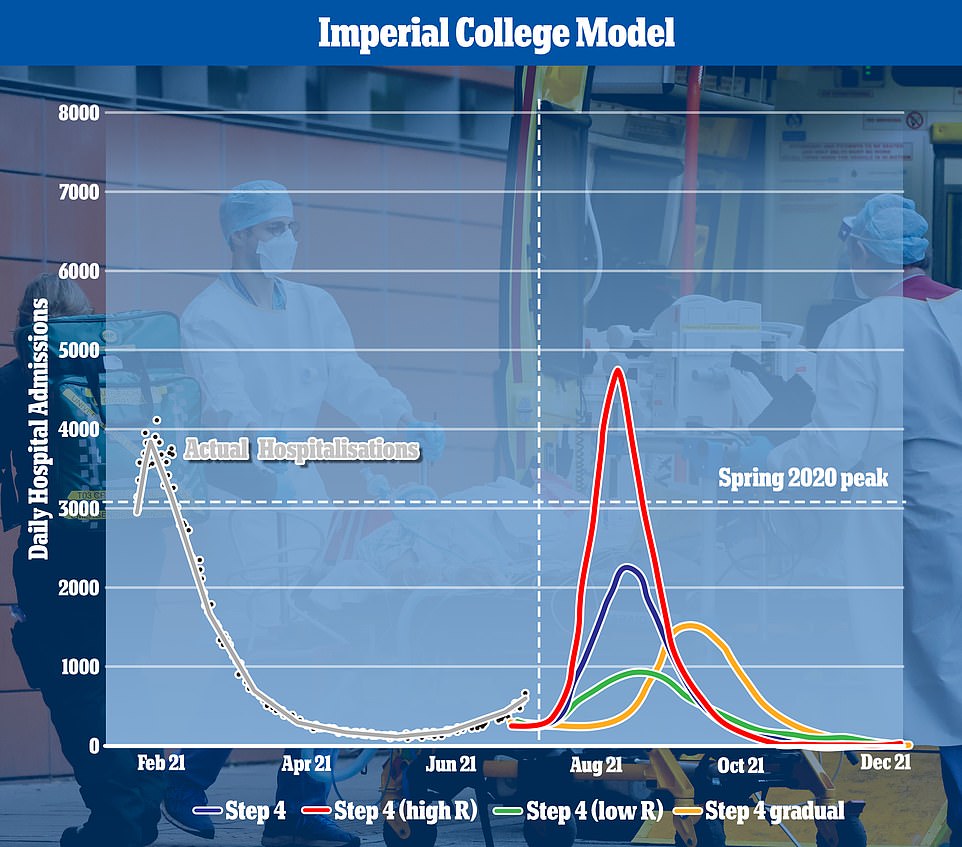
Covid hospitalisations are above the levels estimated by SAGE for mid-July, at 559 on average. SAGE says there could be 2,000 a day in August when they think the second wave will peak
Covid hospital admissions (red dots) are tracking the estimates by the London School of Hygiene and Tropical Medicine. They had three models estimating how hospitalisations would rise if Britons took a long time to go back to pre-pandemic behaviours (blue line), a moderate amount of time (green line) or went back to normal just after ‘Freedom Day’ (red line)
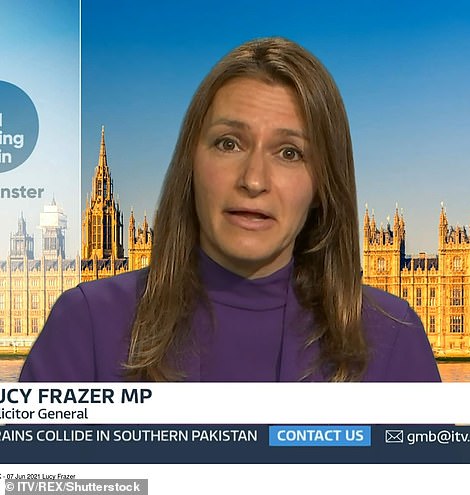
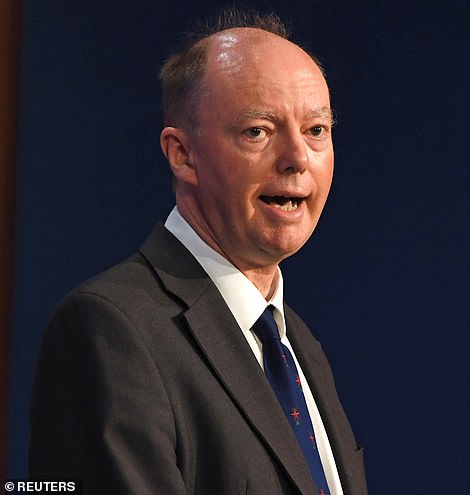
Lucy Frazer warned Britain could be pushed into another lockdown if cases continue to rise. But she hinted that now was still the right time to lift restrictions. And Professor Chris Whitty (right) says restrictions could be reimposed in weeks
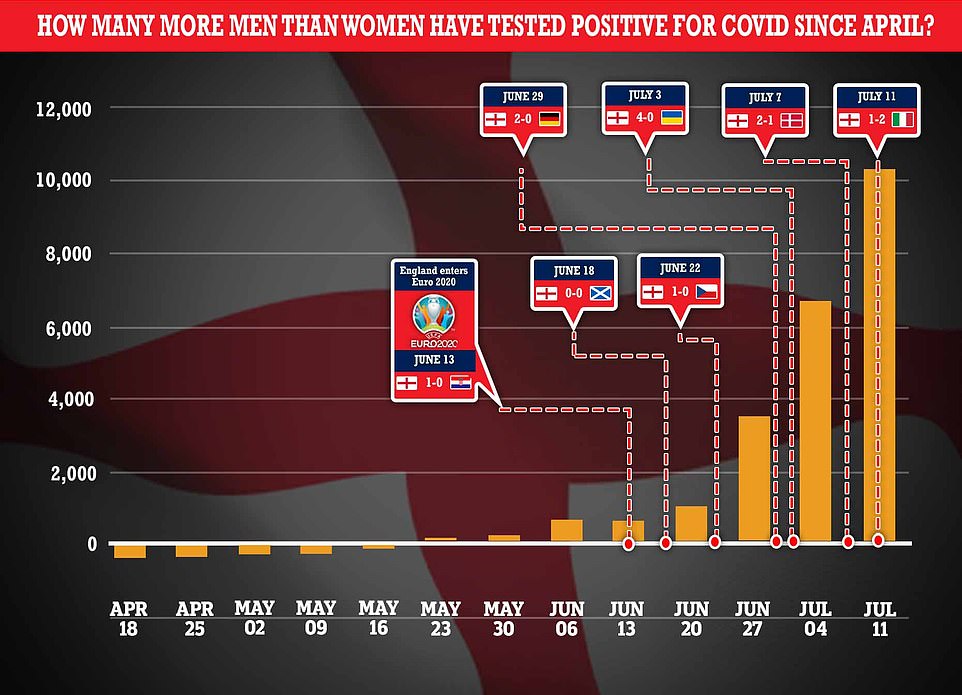
Public Health England data showed 10,267 more young men than women were infected over the last two weeks, with the gender gap having widened since the tournament kicked off
Saying restrictions should be eased on July 19, Ms Frazer told Sky News: ‘I think the Health Secretary has been very clear, as has the Prime Minister, that we will see infections rise.
‘But the reason why restrictions are being taken away is because of the vaccination programme, which will protect people when those infections do rise.
She added: ‘We are going into the summer, a large number of people have been vaccinated, we’ve had a really tough time, we’re still asking people to take responsibility and we do need to ask ourselves, if we don’t open up now, when will we be able to open up?
‘It is really important that we get the balance right between ensuring that we keep this virus under control and we take the necessary clinical measures to do that, but that we also recognise that there are consequences of not opening up and not allowing people to go about their daily lives.’
Professor Whitty warned yesterday that Britain is ‘not out of the woods yet’ and could face another lockdown within weeks.
Speaking at a Science Museum event, he said: ‘I don’t think we should underestimate the fact that we could get into trouble again surprisingly fast. We are not by any means out of the woods yet on this,.
‘[But] we are in much better shape due to the vaccine programme, and drugs and a variety of other things.’
He called on Britons to ‘take things incredibly slowly’ after July 19, amid warnings from transport operators across the country that they will still ask people to wear face masks next week.
‘If you look over what people have done, and in fact if you look at what people intend to do now, people have been incredibly good at saying, ”I may be a relatively low risk, but people around me are at high risk, and I’m going to modify my behaviours”,’ he said.
Professor Whitty also warned the country was running the risk of seeing ‘vaccine escape variants’ that could push the UK ‘some way backwards’ into the worst days of the pandemic.
Some scientists have already blamed Euro 2020 for driving a ferocious surge in cases, after people crowded together in pubs and homes to watch the matches and tens of thousands of fans packed inside Wembley for England’s six home games in London.
Experts have also speculated England’s cases could start to fall after the national team’s dramatic defeat to Italy on penalties in the final last Sunday. Scotland saw its outbreak start to fall when it crashed out of the competition early.
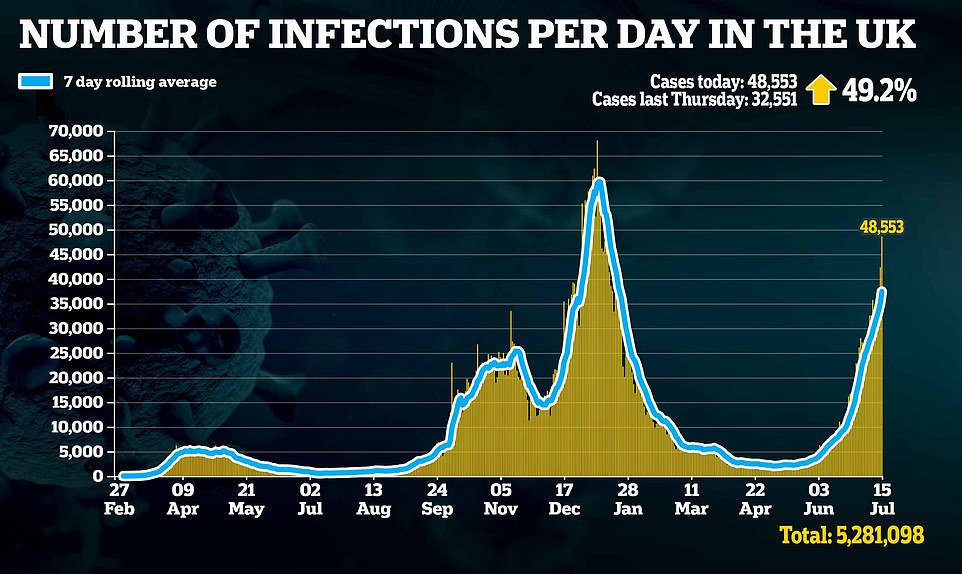
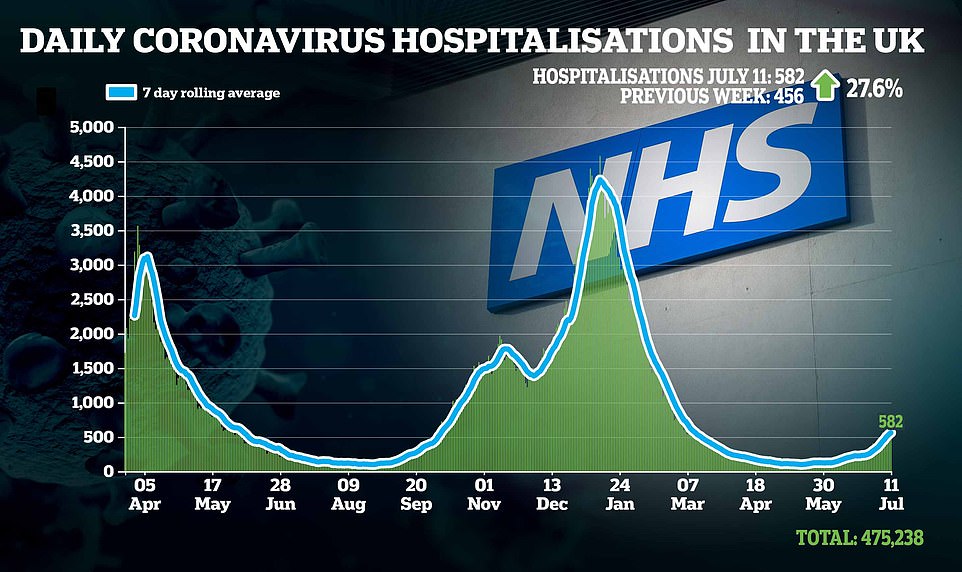
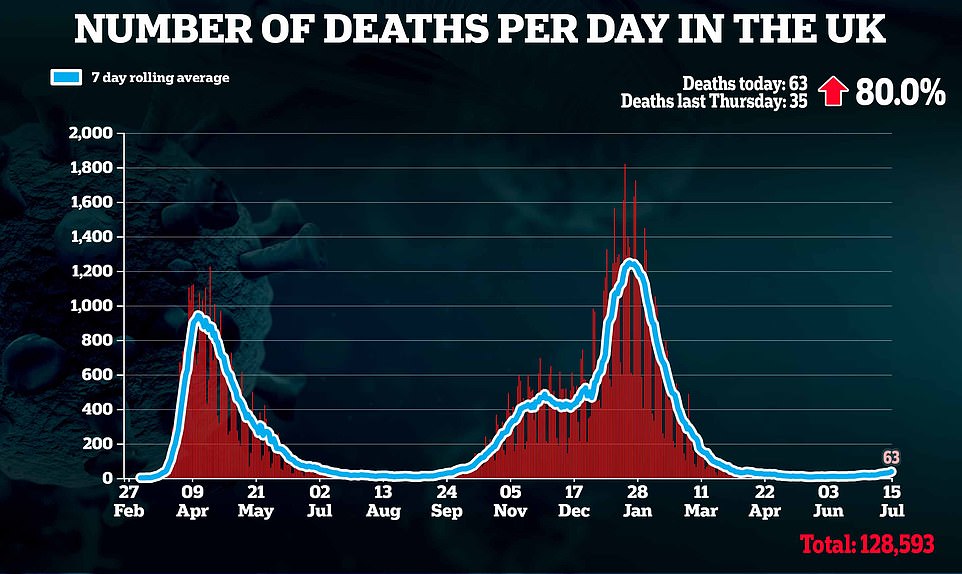
PHE’s weekly surveillance report yesterday revealed cases are now at their highest levels since the pandemic began among teenagers, who are likely to have only had one dose of the vaccine. Rates were highest in the North East and Yorkshire, which have become the biggest hotspots for the Indian variant since the third wave took off.
Separate data from Test and Trace showed infections surged 43 per cent last week after another 194,005 people tested positive for the virus.
Despite the daily metrics pointing towards a growing epidemic, one surveillance study today suggested the third wave may have already peaked.
King’s College London scientists behind the symptom study estimated 33,118 people were catching the virus daily in the week ending July 10, compared to 33,723 in the previous seven-day spell.
Professor Tim Spector, who leads the study, said infections may now be beginning to ‘plateau’ but the rate of decline was slower than during the second wave.
The study also found almost half of all cases are now among people who have received at least one dose of the Covid vaccine, which Professor Spector said may have happened because the virus was ‘running out’ of un-vaccinated people without previous immunity to infect.
This does not mean the jabs do not work. Scientists have always been honest that they are not perfect and millions will still be vulnerable to infection even after getting both doses.
It comes after a study yesterday suggested elderly Brits given AstraZeneca’s vaccine are less likely to have Covid antibodies than those who had Pfizer’s. Rigorous trials also showed the British-made jab was slightly weaker.
Two regions of England are recording their highest rate of new Covid-19 cases since comparable figures began in summer 2020, when mass testing was first introduced across the UK.
The North East recorded 835.8 cases per 100,000 people in the week to July 11, while Yorkshire and the Humber recorded 462.7 per 100,000, according to the latest Covid-19 surveillance report from PHE.
All other regions are recording their highest rate since January. Case rates are also rising for all age groups, with 20 to 29-year-olds recording the highest rate of 747.3 cases per 100,000 people.
It is the highest rate for this age group since the week to January 10. Both five to nine-year-olds (297.3 cases per 100,000) and 10 to 19-year-olds (729.1) are recording their highest rates since comparable figures began.
It comes amid reports France could be moved to the ‘red list’ in a massive blow for UK holidaymakers.
The move would force Brits returning from or transiting through the country into mandatory hotel quarantine on their return, even after July 19.
Scientists are currently reviewing data from across the channel amid a surge in the South African or beta variant of the disease.
France is currently on the UK amber list, meaning that from Monday, double-jabbed Brits would be allowed to holiday there without having to isolate on their return.
But that would not apply to travel to red list countries, which currently include India, Pakistan, Brazil and Turkey.
The Telegraph reported that the move was discussed at a meeting this week that saw the Balearic Islands moved from the green to amber list.
Scientists have been ordered to take a ‘deep dive’ into data from France before such a serious decision can be taken.
A decision could be taken as early as Monday. But Boris Johnson has previously refused to red list France due to the high level of cross-Channel goods traffic that could potentially be disrupted.
Yesterday air industry bosses today blasted the Government’s ‘on and off again’ decision-making after Ibiza, Majorca and Menorca were axed from the green list, despite having lower Covid rates than the UK.
The move by Transport Secretary Grant Shapps to demote the Balearic Islands to the amber list of foreign destinations on Wednesday sparked fury from travel experts, MPs and holidaymakers.
EasyJet CEO Johan Lundgren accused ministers of a ‘double standard where (foreign) travel is treated differently to the domestic economy’.

